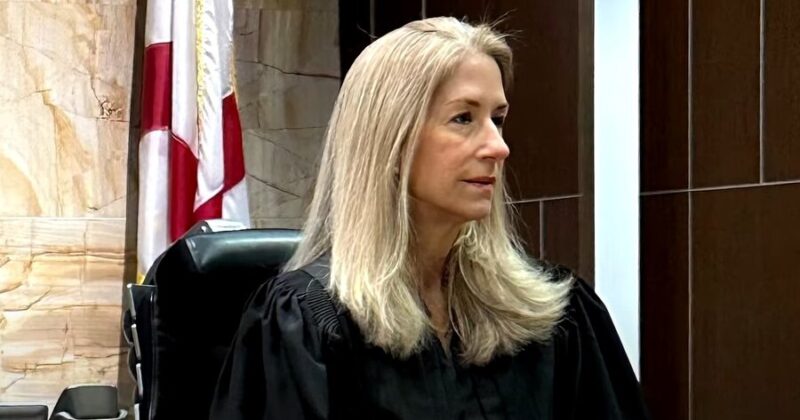A federal judge has rejected the motion filed by ABC News and George Stephanopoulos to dismiss the defamation lawsuit brought against them by former President Donald Trump.
U.S. District Judge Cecilia Altonaga’s decision on Wednesday allows former President Donald Trump to move forward with his lawsuit against ABC News and anchor George Stephanopoulos.
The lawsuit stems from a March on-air interview where Stephanopoulos repeatedly stated that Trump was found “liable for rape” in a case brought by writer E. Jean Carroll. A New York jury actually found Trump liable for sexual abuse, not rape, a claim the former president has strongly denied.
“Defendants have not met their burden of proving the fair report privilege applies,” Judge Altonaga wrote in the ruling. “Any remaining questions as to the reasonableness of Stephanopoulos’s statements are not for resolution on a motion to dismiss.”
The issue centers on a March 10 broadcast of ABC News’s “This Week,” where George Stephanopoulos interviewed Rep. Nancy Mace (R-S.C.) and stated that former President Donald Trump was found “liable for rape.” Trump claims that this statement was defamatory because the jury did not actually make that finding.
The federal lawsuit, filed in Miami by the former president, is seeking an unspecified amount of damages.
Judge Lewis A. Kaplan of the Southern District of New York had determined that the jury’s finding in the case amounted to a finding of rape.
Both ABC News and George Stephanopoulos, who served as a White House press secretary during the Clinton administration, referenced this ruling in their attempt to have former President Trump’s lawsuit dismissed.
Attorneys for ABC News and George Stephanopoulos argued that the statements made during the interview were largely accurate and protected by the fair report privilege. This legal principle shields journalists from libel claims when they report truthful and accurate accounts of official proceedings or documents.
“In this case, former President Trump seeks to re-litigate a meritless theory of defamation that he has already lost twice in New York. Mr. Trump is collaterally estopped from doing so here,” the attorneys wrote in May.
“And if this Court were to reach the merits, at bottom, this case asserts that even after a jury has found that a person committed a violent sexual assault, it is defamatory to say that the person committed a ‘rape.’ That is not a proposition Florida law recognizes.”
According to Judge Kaplan’s ruling last year, the jury’s “finding that Ms. Carroll failed to prove that she was ‘raped’ within the meaning of the New York Penal Law does not mean that she failed to prove that Mr. Trump ‘raped’ her as many people commonly understand the word ‘rape.’”
But in Wednesday’s decision, Judge Altonaga wrote that Mr. Stephanopoulos used the term in a different manner during his interview with Ms. Mace.
“Here, of course, New York has opted to separate out a crime of rape; and Stephanopoulos’s statements dealt not with the public’s usage of that term, but the jury’s consideration of it during a formal legal proceeding,” the judge wrote.
The judge noted that the court did “not find that a reasonable jury must—or even is likely to—conclude Stephanopoulos’s statements were defamatory,” adding that Wednesday’s decision merely allows the case to move to the discovery phase and closer to a possible trial.
“A jury may, upon viewing the segment, find there was sufficient context,” she wrote. “A jury may also conclude Plaintiff fails to establish other elements of his claim … but a reasonable jury could conclude Plaintiff was defamed and, as a result, dismissal is inappropriate.”
In response, former President Trump lauded the judge’s decision on his Truth Social platform on Wednesday afternoon, calling it a “big win.”
Share your thoughts by scrolling down to leave a comment.

